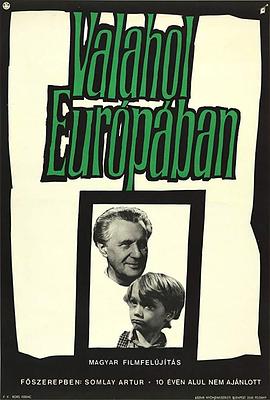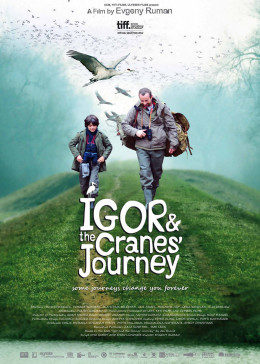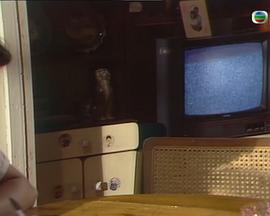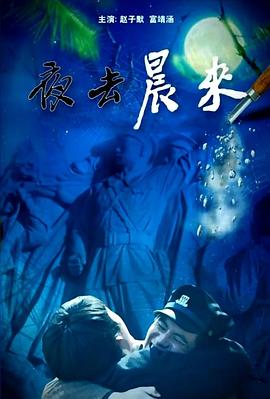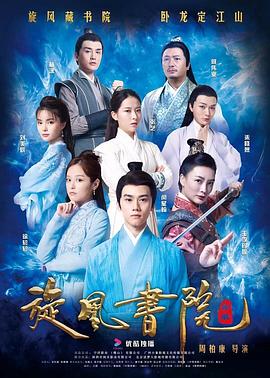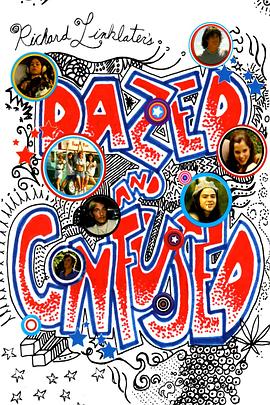导演:Radványi Géza
主演:Artúr Somlay Miklós Gábor Zsuzsa Bánki
状态:HD中字
剧情:Somewhere in the remote region, the war ends. In the midst of ruined cities and houses in the streets, in rural hamlets, everywhere where people still live, are children who have lost their homes and parents. Abandoned, hungry, and in rags, defenseless and humiliated, they wander through the world. Hunger drives them. Little streams of orphans merge into a river which rushes forward and submerges everything in its path. The children do not know any feeling; they know only the world of their enemies. They fight, steal, struggle for a mouthful of food, and violence is merely a means to get it. A gang led by Cahoun finds a refuge in an abandoned castle and encounters an old composer who has voluntarily retired into solitude from a world of hatred, treason, and crime. How can they find a common ground, how can they become mutual friends The castle becomes their hiding place but possibly it will also be their first home which they may organize and must defend. But even for this, the price will be very high. To this simple story, the journalist, writer, poet, scriptwriter, movie director, and film theoretician Béla Balázs applied many years of experience. He and the director Géza Radványi created a work which opened a new postwar chapter in Hungarian film. Surprisingly, this film has not lost any of its impact over the years, especially on a profound philosophical level. That is to say, it is not merely a movie about war; it is not important in what location and in what period of time it takes place. It is a story outside of time about the joyless fate of children who pay dearly for the cruel war games of adults. At the time it was premiered, the movie was enthusiastically received by the critics. The main roles were taken by streetwise boys of a children's group who created their roles improvisationally in close contact with a few professional actors, and in the children's acting their own fresh experience of war's turmoil appears to be reflected. At the same time, their performance fits admirably into the mosaic of a very complex movie language. Balázs's influence revealed itself, above all, in the introductory sequences an air raid on an amusement park, seen in a montage of dramatic situations evoking the last spasms of war, where, undoubtedly, we discern the influence of classical Soviet cinematography. Shooting, the boy's escape, the locomotive's wheels, the shadows of soldiers with submachine guns, the sound of a whistle—the images are linked together in abrupt sequences in which varying shots and expressive sharp sounds are emphasized. A perfectly planned screenplay avoided all elements of sentimentality, time-worn stereotypes of wronged children, romanticism and cheap simplification. The authors succeeded in bridging the perilous dramatic abyss of the metamorphosis of a children's community. Their telling of the story (the scene of pillaging, the assault on the castle, etc) independently introduced some neorealist elements which, at that time, were being propagated in Italy by De Sica, Rossellini, and other film artists. The rebukes of contemporary critics, who called attention to formalism for its own sake have been forgotten. The masterly art of cameraman Barnabás Hegyi gives vitality to the poetic images. His angle shots of the children, his composition of scenes in the castle interior, are a living document of the times, and underline the atmosphere and the characters of the protagonists. The success of the picture was also enhanced by the musical art of composer Dénes Buday who, in tense situations, inserted the theme of the Marseilaise into the movie's structure, as a motive of community unification, as an expression of friendship and the possibility of understanding. Valahol Europaban is the first significant postwar Hungarian film. It originated in a relaxed atmosphere, replete with joy and euphoria, and it includes these elements in order to demonstrate the strength of humanism, tolerance, and friendship. It represents a general condemnation of war anywhere in the world, in any form.
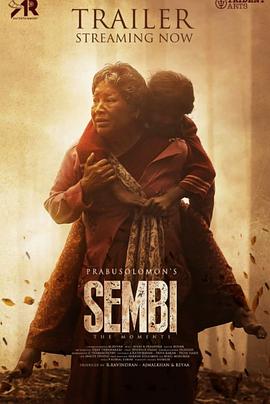 9.0HDKovai Sarala Mullai Arasi Gnanasambandam Gurunathan A bus named Anbu narrates the stories of its 24 passengers, giving a glimpse of their journey from K
9.0HDKovai Sarala Mullai Arasi Gnanasambandam Gurunathan A bus named Anbu narrates the stories of its 24 passengers, giving a glimpse of their journey from K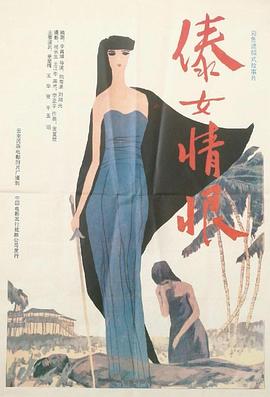 HD单星梅 贾平 王华 韩志凯 玉坦 清朝末年,一笔由南洋华侨捐赠云南起义的经费,秘密送抵边境地区。此事立刻引起清廷的注意,清廷鹰犬鄂格勒和樊虎兄妹派人在召昆土司去取经费时半路截杀。哈尼青年为掩护召昆勐师徒献出了年轻的生命。召昆勐回到土司
HD单星梅 贾平 王华 韩志凯 玉坦 清朝末年,一笔由南洋华侨捐赠云南起义的经费,秘密送抵边境地区。此事立刻引起清廷的注意,清廷鹰犬鄂格勒和樊虎兄妹派人在召昆土司去取经费时半路截杀。哈尼青年为掩护召昆勐师徒献出了年轻的生命。召昆勐回到土司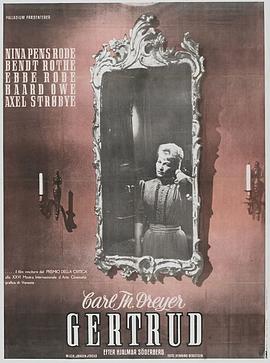 HD尼娜·彭斯·罗德 本特·罗斯 埃贝·罗德 巴尔德·奥维 阿克塞尔·斯特里普 Karl Gustav Ahlefeldt Vera Gebuhr Lars Knutzon Anna Malberg Edouard Mielche 本片讲述了一个周旋于几个男人间的女人的爱情故事。女歌手Gertrud(Nina Pens Rode 饰)的丈夫Gustav Kanning(Bendt Rothe 饰)将成为内阁大臣,Gertrud却
HD尼娜·彭斯·罗德 本特·罗斯 埃贝·罗德 巴尔德·奥维 阿克塞尔·斯特里普 Karl Gustav Ahlefeldt Vera Gebuhr Lars Knutzon Anna Malberg Edouard Mielche 本片讲述了一个周旋于几个男人间的女人的爱情故事。女歌手Gertrud(Nina Pens Rode 饰)的丈夫Gustav Kanning(Bendt Rothe 饰)将成为内阁大臣,Gertrud却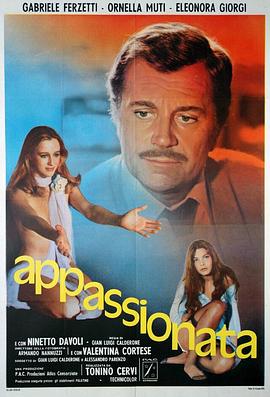 HD加布里埃尔·费泽蒂 奥内拉·穆蒂 埃莉奥诺拉·吉奥尔吉 尼内托·达沃利 瓦伦蒂娜·格特斯 Jeanne Martinovic 雷娜塔·扎明戈 卡拉·曼奇尼 Two teenage friends conspire to find out how much their youthful sensuality can disrupt one of their
HD加布里埃尔·费泽蒂 奥内拉·穆蒂 埃莉奥诺拉·吉奥尔吉 尼内托·达沃利 瓦伦蒂娜·格特斯 Jeanne Martinovic 雷娜塔·扎明戈 卡拉·曼奇尼 Two teenage friends conspire to find out how much their youthful sensuality can disrupt one of their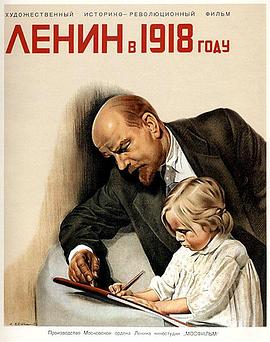 8.0HD史楚金 十月革命胜利后,新兴的苏维埃政权受到各方敌人的武装干涉。英、日、土耳其等国利用俄国地主、富农阶级扼杀苏维埃政权的本性,在粮食问题上大做文章。同时,国内的白俄势力用能想到的所有手段剌杀列宁,打入敌人内部
8.0HD史楚金 十月革命胜利后,新兴的苏维埃政权受到各方敌人的武装干涉。英、日、土耳其等国利用俄国地主、富农阶级扼杀苏维埃政权的本性,在粮食问题上大做文章。同时,国内的白俄势力用能想到的所有手段剌杀列宁,打入敌人内部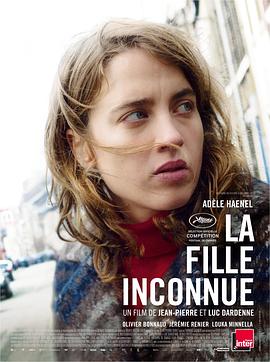 HD阿黛拉·哈内尔 杰瑞米·雷乃 奥利维埃·古尔梅 托马斯·多雷 法布里齐奥·隆吉奥内 摩根·马林 马克·泽戈 Jenny是一名年轻的普科医生。一天晚上,在诊所关门后,她听到敲门声却没有开门。第二天,她听说警察在距离诊所不远处,发现了一具身份不明的年轻女孩的尸体。
HD阿黛拉·哈内尔 杰瑞米·雷乃 奥利维埃·古尔梅 托马斯·多雷 法布里齐奥·隆吉奥内 摩根·马林 马克·泽戈 Jenny是一名年轻的普科医生。一天晚上,在诊所关门后,她听到敲门声却没有开门。第二天,她听说警察在距离诊所不远处,发现了一具身份不明的年轻女孩的尸体。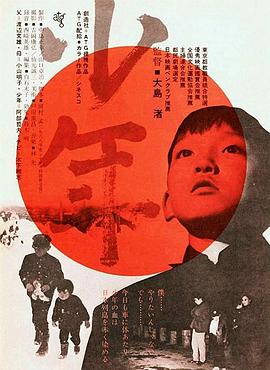 9.0HD渡边文雄 小山明子 阿部哲夫 有些父母,故意让小孩制造车祸,来敲诈驾驶人金钱。这是一度轰动日本的新闻事件。大岛渚将这新闻事件搬上银幕,进一步探讨新闻幕后故事。少年的父亲是战争中受伤的残疾退伍军人,继母曾当过吧女,这个家庭是日本战后
9.0HD渡边文雄 小山明子 阿部哲夫 有些父母,故意让小孩制造车祸,来敲诈驾驶人金钱。这是一度轰动日本的新闻事件。大岛渚将这新闻事件搬上银幕,进一步探讨新闻幕后故事。少年的父亲是战争中受伤的残疾退伍军人,继母曾当过吧女,这个家庭是日本战后
